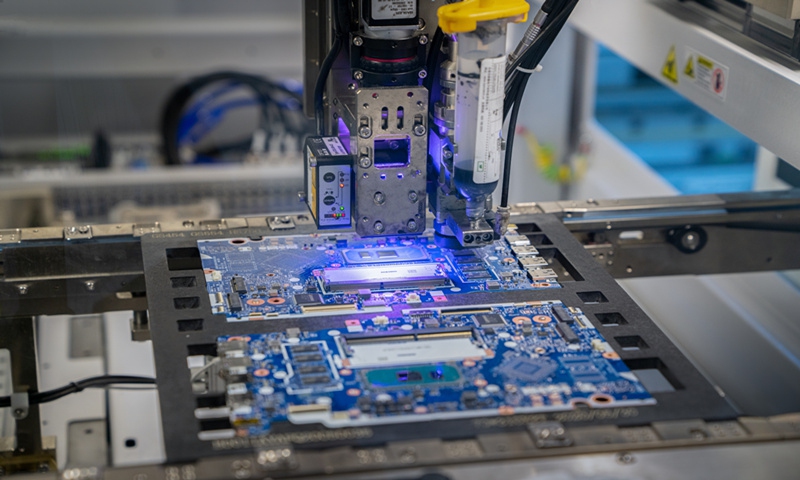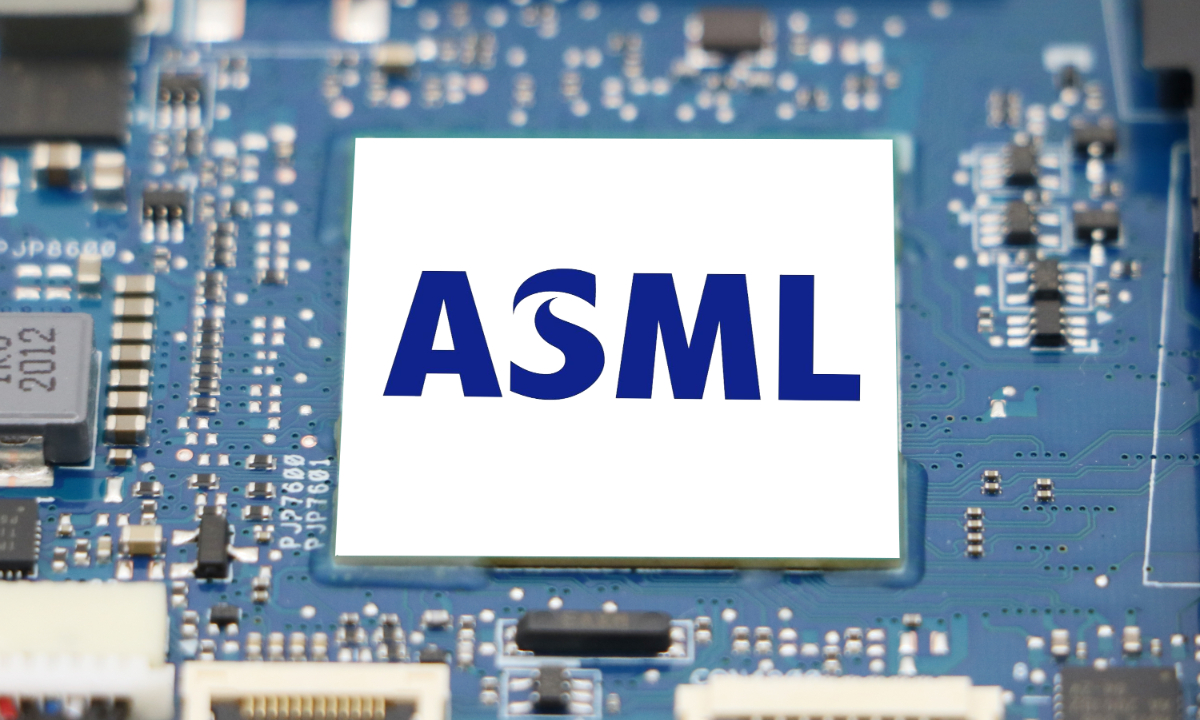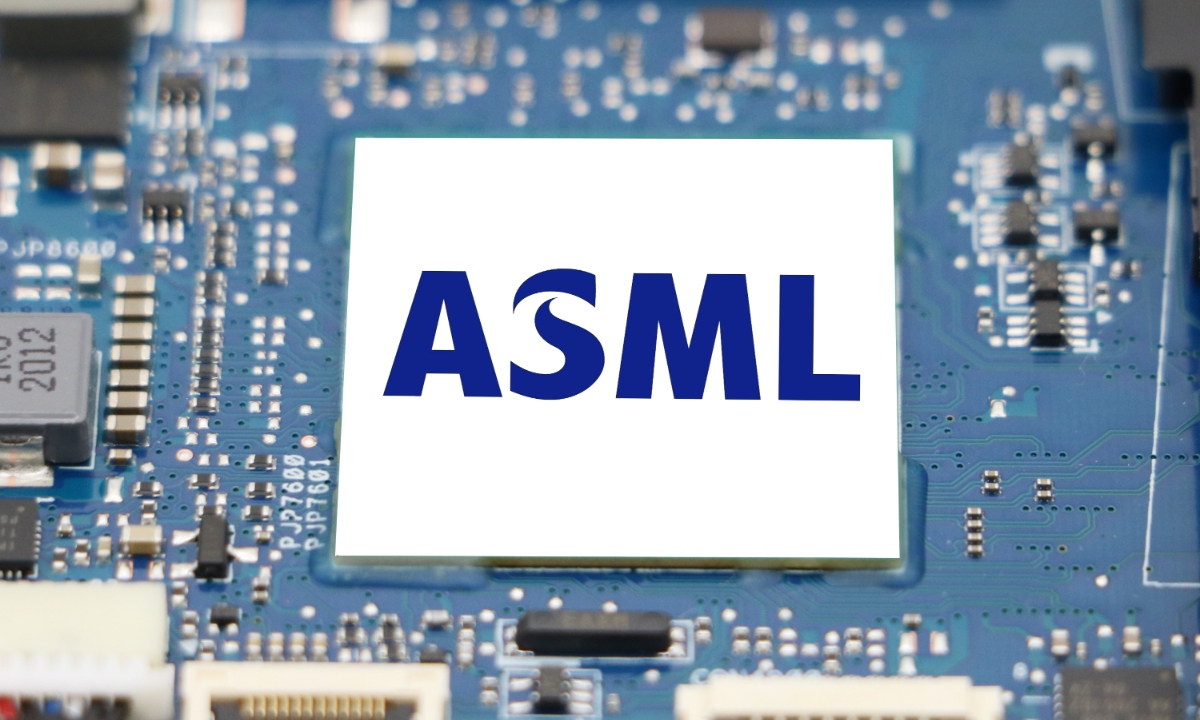
A chip manufacture machine Photo: VCG
Chinese analysts rebuked a Dutch official's claim that China aims to seek military advantages from Netherlands-based ASML's chipmaking tools, saying that the Dutch government's crackdown on China's chip industry - under pressure from the US - may come with a heavy price for the Netherlands, which could lose one of the world's largest chip markets.
"China focuses on foreign expertise, including Dutch expertise in the field of lithography, to promote self-sufficiency in its military-technical development," Reuters reported on Monday, citing Dutch Trade Minister Geoffrey van Leeuwen's note about why the government revoked ASML's export licenses.
Van Leeuwen said that ASML tools are used to make advanced semiconductors that can go into "high-value weapons systems and weapons of mass destruction" and the Dutch government focuses on "the risk of undesirable end use" when reviewing export licensing decisions, the report said.
ASML declined to comment when reached by the Global Times on Tuesday.
"It's the Dutch government's excuse, claiming that China uses Dutch chipmaking technologies in military areas," Xiang Ligang, director-general of the Beijing-based Information Consumption Alliance, told the Global Times on Tuesday.
The Dutch government has made the move obviously under intensifying pressure from the US, Xiang said. "Imposing restrictions on China's chip sector will do great harm to the Netherlands. In the second half of 2023, ASML's exports of lithography equipment to China accounted for more than 40 percent of the company's revenue, underlying the importance of the Chinese market," he said.
The Chinese side urged the Dutch side to take concrete actions to protect the shared interests of China and the Netherlands and the companies of the two countries, and safeguard the stability of international industrial and supply chains and the free, open, fair and non-discriminatory international trade environment, Chinese Foreign Ministry spokesperson Wang Wenbin said at a press conference in January.
Xiang said there will be about 10 semiconductor factories starting up in China, and thus the country's self-supply of chips will further increase to about 30-35 percent this year.
"By 2025, the country will have a total of about 60 such factories, with the country's production capacity of semiconductors accounting for around 50 percent globally by then," he said.
With an increased self-supply ratio, China may further cut imports of semiconductors this year, Xiang said, noting that this may have a profound impact on the global industrial and supply chains, especially the supply from the US and South Korea.
Under pressure from the US, the Dutch government in 2023 introduced a licensing requirement for ASML's shipments of its most advanced deep ultraviolet lithography machines.
On January 2, ASML said that the Dutch government had partially revoked an export license for the shipment of some chipmaking equipment to China, according to a press release sent to the Global Times.
Exports of NXT:2050i and NXT:2100i lithography systems in 2023 were affected, the company said.
ASML said then that it projected that the cancelation of export licenses and new US export restrictions would not have large impact on its 2023 financial results.



